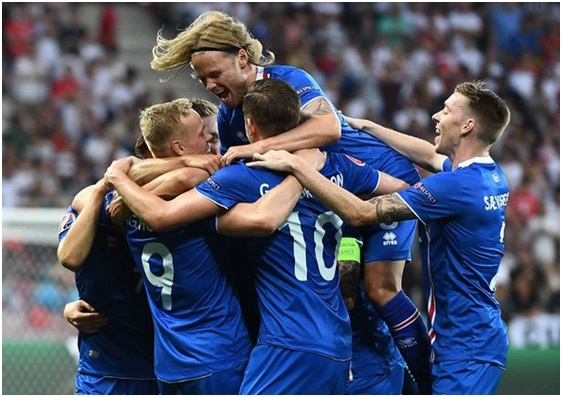
Even though this is not the first time Iceland qualified for the European Championship, there has been a lot of excitement when the Icelandic men’s team made it for the Euro 2016. This has been shown from various articles that have been produced from all over the globe. The reason being that it is quite exceptional from a country of only 33,000 people; in 1995 the women’s team in Iceland reached the Euro’s quarter-finals.
The women’s team is also at the top list of the qualifying group in the Euro 2017 and they have also managed to compete at the 2009 and 2013 tournaments. Women’s team in Iceland is at number 16 while the men’s team is ranked at number 34.
Gender inequality and discrimination is still prevalent in the country. However, the country is placed at first position in terms of gender quality rankings. After the first official women’s league game in 1970, the national women’s team was founded 11 years later. Breidablick has managed to scoop titles in the recent leagues even if the women’s team was decommissioned in 1987 by KSI which is the football federation.
There were no funding, fixtures or support of the women’s team even if it was not split up, and in 1992 the team was brought back to action. They were able to take part in the Euro 1995 quarter- finals after defeating Holland and Greece. They did not make it through the quarter finals since they lost to England and Brighton.
In the past years women’s team was facing great discrimination in terms of football matters. They were not allowed to play on grass pitch fields and football boots were also not allowed. In the recent times, gender equality in football issues has received great coverage and the US women’s team is recognized as one of the leading teams in the world. Great women footballers such as Hope Solo, Alex Morgan and Carli Lloyd have gone forward to demand equal payments as the male footballers.
Female footballers in Iceland are not well recognized at their home place and they have to go play in other countries such as Scandinavia, England and others in USA. Football coverage both internationally and locally has received coverage in Icelandic football unofficial publication.
Over the years women’s football team has been receiving coverage and is finally being accepted. They have the same amount of support as the men’s team and press coverage is at equal measure. However, there is inequality in the league proceedings where men seem to take on a higher toll than women even though women were doing a greater job than some of the men’s team.
Helena Olafsdottir who was a formal national team captain did not represent the team well in press coverage. Things will be expected to change when women proceed to the Euro 2017 championship and plans are underway to have great press coverage when the women’s team is in the field.
April 18, 2025
April 18, 2025
April 18, 2025
April 18, 2025
April 17, 2025
April 17, 2025
April 17, 2025
April 17, 2025
April 17, 2025
April 17, 2025
April 17, 2025